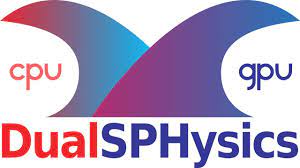You are
cordially invited to the 17th International Smoothed Particle
Hydrodynamics rEsearch and Engineering International Community (SPHERIC)
Workshop organised by the Department of Mechanical, Aerospace and Civil
Engineering (MACE) of the University of Manchester at the island of Rhodes,
Greece.
The SPHERIC international
workshop is the only unique international event with exclusive
focus on the Smoothed Particle Hydrodynamics (SPH) method and associated
particle-based methods. SPH has been widely adopted in the field of
computational fluid mechanics, solid mechanics, geomechanics, manufacturing
engineering and many other disciplines. The SPH scheme is considered to be the
mainstream method for free-surface flows, and multi-phase flows, high
non-linear deformation, fracture and fragmentation and, complex physics due to
its meshless particle-based nature.
The
SPHERIC workshop brings together state-of-the-art developments from academia
and novel interdisciplinary applications from industry in a unique blend towards
advancements of the numerical scheme which showcase on leading academic
journals.
On
behalf of the local organizing committee, it is a pleasure to invite you to the
17th International SPHERIC Workshop. We are looking forward to welcoming you in
Rhodes, Greece and share a successful and enjoyable workshop with you.
The 17th SPHERIC International Workshop will take place in Rhodes,Greece.
An SPH training day is attached to the
workshop.
Please follow the instruction below:
Authors may choose one of the following two categories for their abstract submission:
and are encouraged to use the templates provided. For abstracts which may not align well with one of the two categories, authors may choose the one closer to their work.
The abstracts should be 1 page long and must include one illustrative figure outlining the quality of the results. A comparison with reference solutions or SPHERIC benchmark cases is highly encouraged.
A pdf version of the abstract should be submitted by 24 February 2023 via email. Authors are requested to indicate in their email:
The email should have "SPHERIC 2023 Abstract - Last_Name_of_Corresponding_Author" as subject.
The abstract submission process is now closed .
The abstracts will be assessed by at least three SPH experts from the scientific committee using a blind peer-review process. The quality of the abstracts will be assessed using averaged ratings for three equally important criteria than can be found in the "guide for authors and reviewers" document also, briefly highlighted below:
Notification of acceptance for publication will be given on or before the 17th of March 2023 by email.
After notification of accepted abstracts, authors must prepare and submit their full manuscript according to the SPHERIC templates, the paper must not exceed 8-pages in total. Templates are available for MS Word or LaTeX. It is important NOT to put any page numbers in the final paper. It is also recommended not to spend too much space explaining "standard/well known SPH equations" on the paper, as readers are assumed to be familiar with the basic SPH formulation.
Papers should be submitted by the 28th April 2023 in pdf format via email. The email should have SPHERIC 2023 Article - "Last_Name_of_Corresponding_author" as object. Students can enter the "Libersky Prize" by indicating their intention on the submission email.
At least one unique registration must correspond to each paper and the registration should be finalized no later than 5th May 2023. This author will be the presenter at the workshop. There is a maximum of one presentation for each delegate during the workshop.
Papers with no registered authors by 6th May 2023 will be marked invalid and will NOT be published in the workshop proceedings or have a presentation slot (cf. Registration and payment Section).
The Libersky Prize is awarded at every SPHERIC Workshop for the best student "paper & presentation" judged by the Scientific Committee. Student authors who would like to sign up for the student prize should indicate it in their email during the submission of the paper. To be eligible for the student prize, the student must be the first author on the paper, present the work and attend the final ceremony.
The award is named in honour of Prof. Larry Libersky, one of the pioneers of SPH in engineering.
The 17th SPHERIC International Workshop is a plenary conference (single stream) that is divided into 14 sessions with 51 presentations. Each session covers workshop topics and comprises of 3-4 delegate oral presentations:
The detailed programme can be found here in pdf form.
Supplementary to the workshop, a Training Day is offered on the 26th of June, 2023 between 09:30 and 17:30. The training is most suitable for researchers who may or may not be familiar with the principles of SPH and/or are beginning their work in the field. More
experienced SPH researchers and practitioners from academia or industry may
find the training day a useful opportunity for sharing insights and ideas.
Registration is scheduled from 09:00 to 09:30.
The training day is structured into two parts:
The DualSPHysics training session is organized and run by the developers:
Please note, a PC will not be provided for the practical training day and delegates may bring their laptop for running the software.
The Training Day carries an additional registration fee.
Participants of the Training Day have to register online on the Registration page.
If you are planning to join us to the excursion to Lindos and Acropolis on Friday the 30th of June please,
click here
for the detail programme and tickets (60€).
Departure approximately 9 am from Rodos Palace hotel – return to the hotel approximately 5 pm.
Lindos is the nicest part of Rhodos and we will have plenty of time to discover the Acropolis and explore the village and beach.
Note, please register by the end of Wednesday 9 pm at the latest.

